On June 20, 2020, the Cloud Forum on "China Japan Relations and East Asian Regional Economy under the Epidemic Situation" was successfully held. The forum was hosted by the Japan Research Center of Shanghai Jiaotong University, and co sponsored by the School of International and Public Affairs, Kaiyuan School of Law, Antai School of Economics and Management, and the School of Foreign Languages of Shanghai Jiaotong University. At the beginning of 2020, as the largest black swan event in this century, the COVID-19 has made the already complex and changeable international political pattern more complicated and confusing. External factors, such as the accelerated deterioration of China US relations, the uncertainty of China India relations, the erratic attitude of the EU towards China, the readiness of Tsai Ing wen's authorities in Taiwan, and the cold of South Korea North Korea relations, have added new variables to the already sensitive and volatile East Asia relations. Whether the epidemic situation means the end of the era of globalization, whether the friendly interaction among the three East Asian countries at the initial stage of the epidemic situation can develop into an East Asian regional cooperation full of opportunities after the epidemic situation, and what global political challenges China will face after the epidemic situation have become topics that urgently need our East Asian researchers to give answers. The purpose of this forum is to integrate the research advantages and professional expertise of domestic East Asian researchers, focus on the two major topics of "China Japan politics and diplomacy" and "economic and regional cooperation", analyze the challenges that China will face in East Asian relations after the epidemic, and provide knowledge reserves for China's international diplomacy and regional economic development policy choices after the epidemic. From Renmin University of China, Shanghai Institute of International Studies, Fudan University, China Institute of Modern International Relations, Department of International Politics of School of International Relations, China Ocean Development Research Association, Shanghai University of International Business and Economics, Shanghai University, Shanghai Foreign Studies University, Chinese PLA Academy of Military Sciences, Tongji University, Japan Tesco, Jetro SME overseas service platform Shanghai Shimin Law Firm and dozens of experts, scholars and practitioners from Shanghai Jiaotong University attended the forum.

Ding Jian, Secretary of the Party Committee of the School of Foreign Languages of Shanghai Jiao Tong University, presided over the opening ceremony of the forum. Zhou Cheng, Deputy Secretary of the Party Committee of Shanghai Jiao Tong University, Hu Jin, Dean of the School of International and Public Affairs of Shanghai Jiao Tong University, and Ji Weidong, Director of the Japan Research Center of Shanghai Jiao Tong University delivered warm speeches respectively.
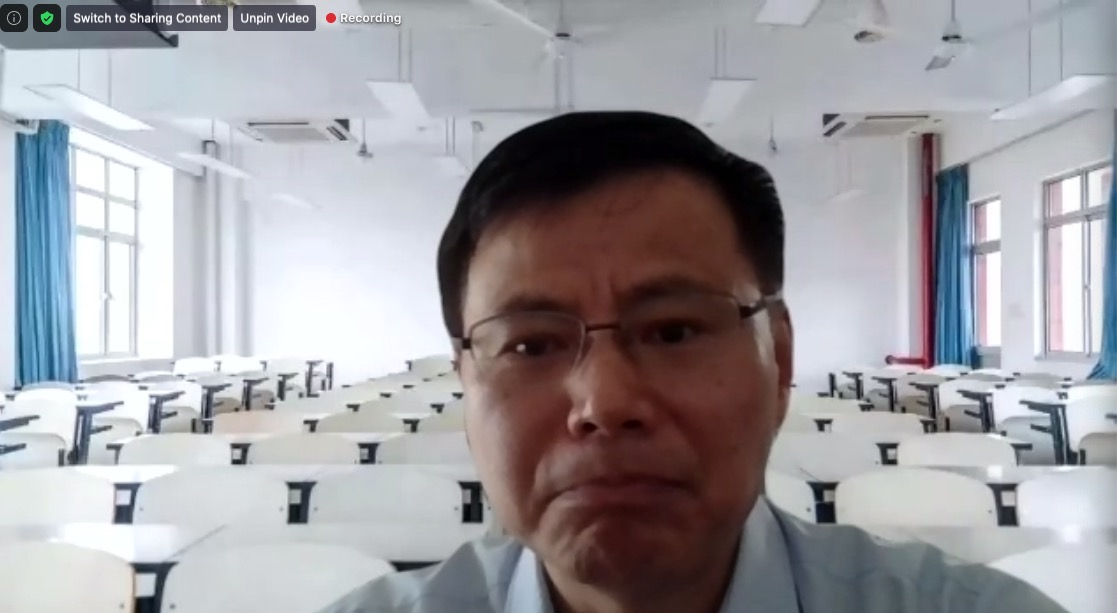
In his speech, Vice Secretary Zhou Cheng said that in the face of the current epidemic situation still escalating in the world, China and Japan, as the second and third largest economies in the world, should continue to play the spirit of mutual assistance of "mountains and rivers are different, and the weather is the same", and continue to expand cooperation in responding to the epidemic situation and economic aspects. He extended a warm welcome to the experts present and looked forward to the seminar's suggestions for China and Japan to strengthen anti epidemic cooperation and continue regional economic cooperation.
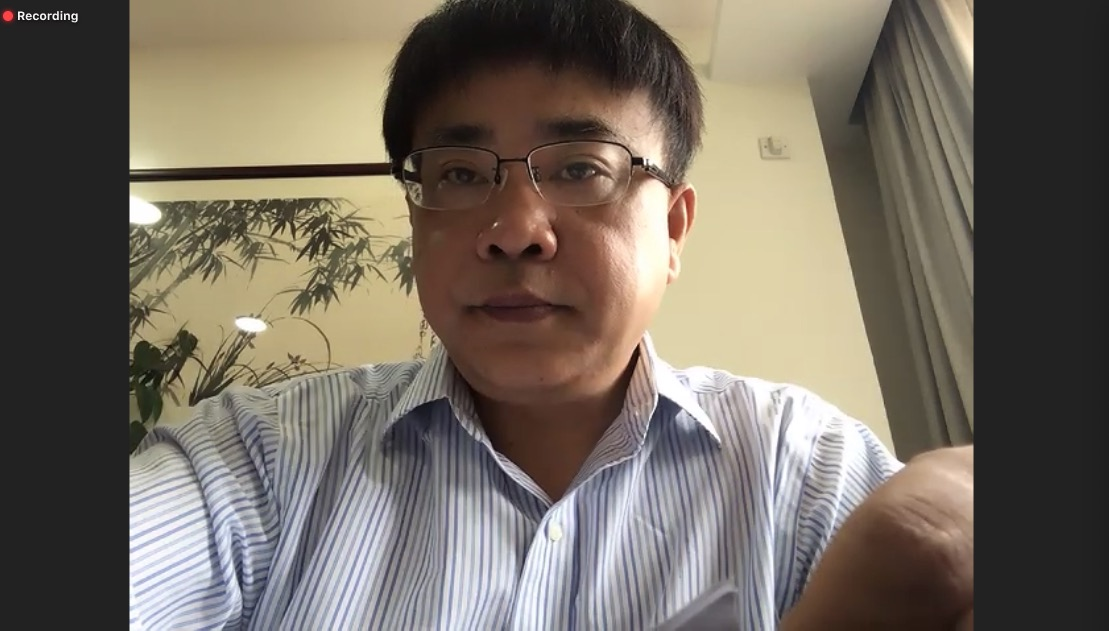
Then President Hu Jin delivered a speech on behalf of the co organizer of the conference, the School of International and Public Affairs of Shanghai Jiaotong University. He pointed out that the outbreak of the COVID-19 had cast a fog over the previously positive East Asian relations, while Japan's erratic attitude towards China during the epidemic had filled East Asian relations with many variables. In this context, it is an urgent need of the times to launch a high-level academic dialogue around China Japan relations and the East Asian regional economy.

At the end of the opening ceremony, Director Ji Weidong introduced the central theme of the seminar on behalf of the Japan Research Center. He pointed out that under the circumstances of rapid changes in the international pattern, China Japan relations and East Asia relations are restricted by China US relations, China India relations and other international relations. At the beginning of the epidemic, the close anti epidemic community model formed by the three East Asian countries provided good opportunities and inspiration for the future Sino Japanese relations and East Asian politics, but it was also constantly challenged by external factors. These factors have made China Japan relations and East Asia economic cooperation a very complex but significant research topic, which is also the original intention of this seminar.

The first unit of the forum was presided over by Hu Lingyuan, director of the Japan Research Center of Fudan University. The speakers included Wu Jinnan, deputy director of the Academic Advisory Committee of the Shanghai Institute of International Studies, Shi Yinhong, professor of Renmin University of China, Gao Lan, deputy director of the Japan Research Center of Fudan University, Wang Xi, a signatory expert of the Jetro SME overseas service platform, and Lian Degui, director of the Japan Research Center of Shanghai Foreign Studies University.
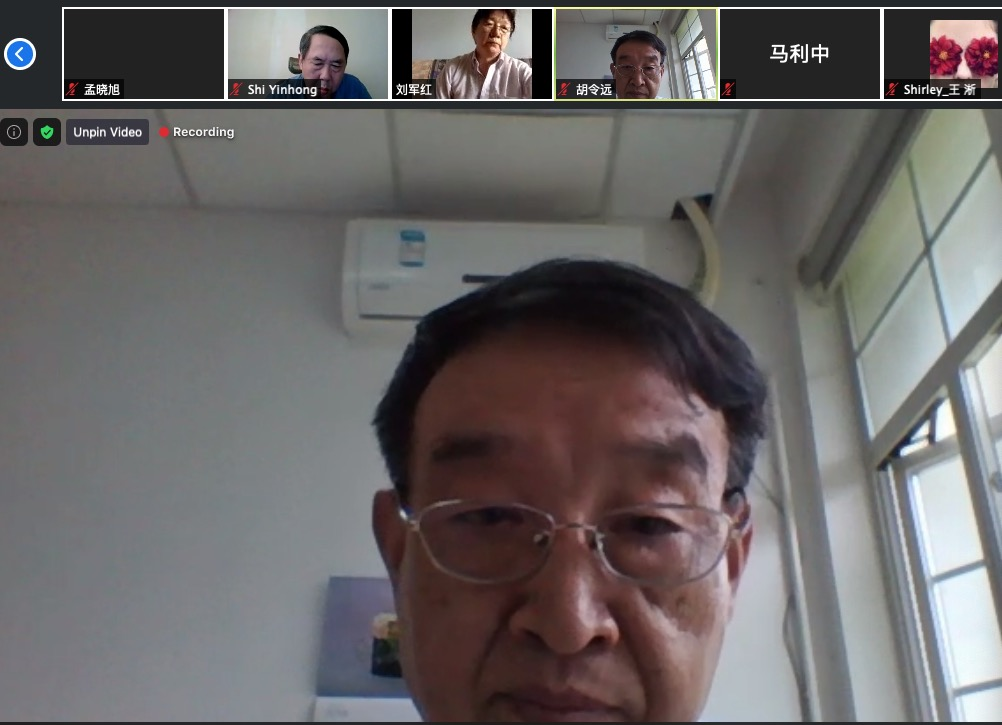
Researcher Wu Jinan gave a speech on the topic of "Abe's dream of a great country after the COVID-19 collapsed". He reviewed and summarized the impact of the COVID-19 on Japan's domestic political situation. He believed that Abe's indecision at the beginning of the epidemic led to a serious decline in his support rate, and the epidemic had severely frustrated Abe's "dream of a great country" and "dream of leadership".
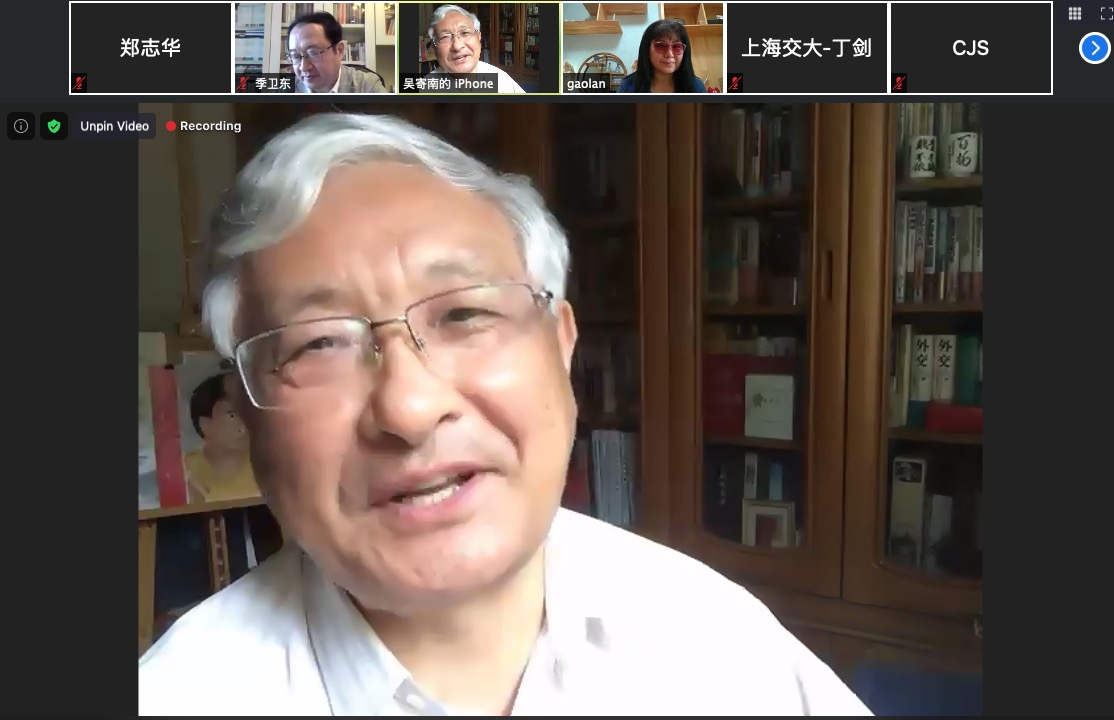
The topic of Professor Shi Yinhong's report is "China's Foreign Relations in the Great Epidemic and the Necessity of Strategic Optimization". He believes that China may face the challenge of the United States to settle accounts in the autumn and follow through. The United States will accelerate the pace of selective decoupling, and the world in the future will form two camps and a huge swing intermediate group.
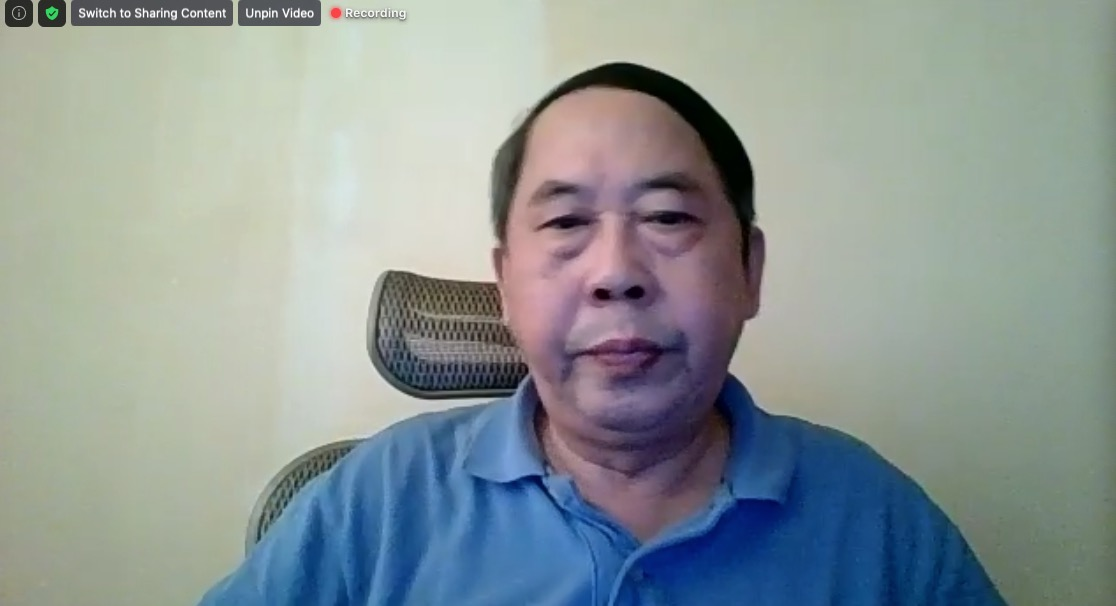
Professor Gao Lan reported on the topic of "China's relationship with the United States and Japan under the epidemic situation". She believed that China Japan relations, which were in the midst of the confrontation between China and the United States, were generally good, but still fragile and repetitive. The next six months will be a period of high incidence of friction, and it will be a "medium and low risk period" until the post Abe regime in 2021.
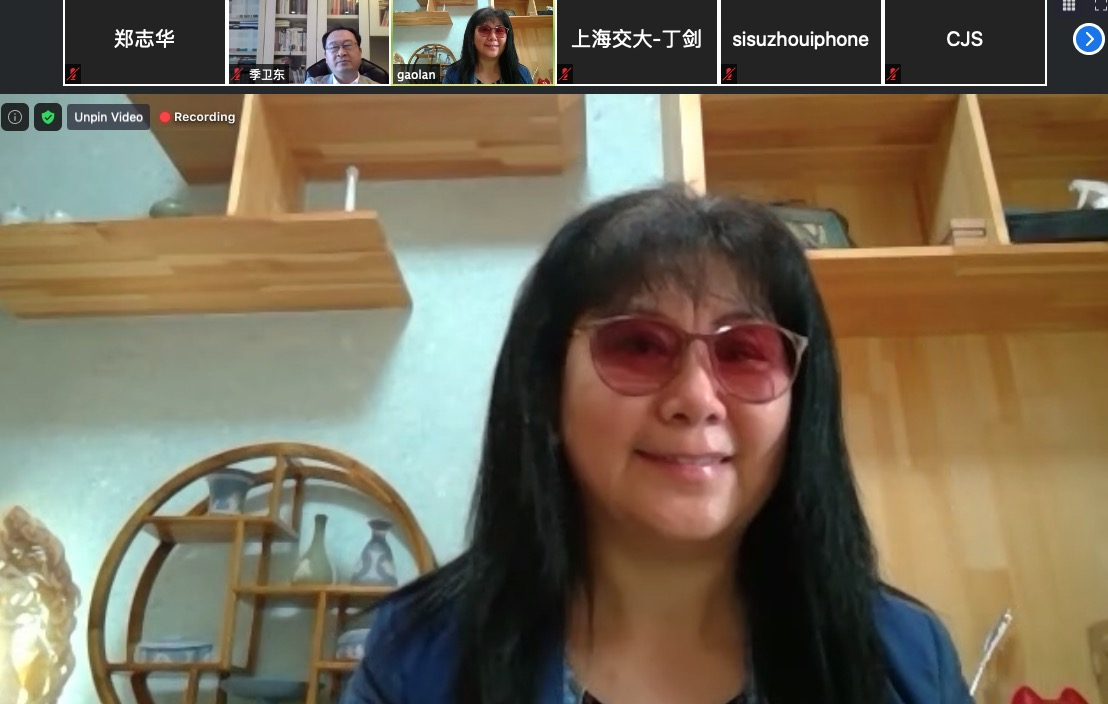
Ms. Wang Xi's report was entitled "New Suggestions for Sino Japanese Relations and Confidence Reconstruction in China under the Epidemic". From the perspective of promoting China's market opening and CSR for Chinese enterprises to invest in Japan, she suggested promoting the development of Sino Japanese industries with a more open and equal business environment, and integrating into overseas markets with more humble business empathy.
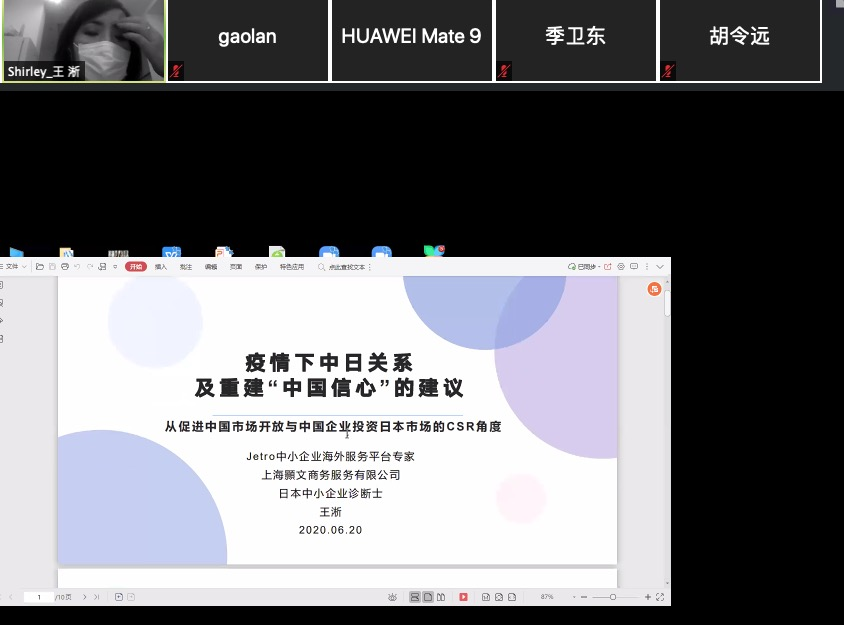
Professor Lian Degui comprehensively combed the current situation of China Japan relations and East Asian regional economy under the epidemic situation, and put forward suggestions on the problems and challenges faced by China Japan relations and regional economic integration.

The second unit of the forum was chaired by Wu Jinan, deputy director of the Academic Advisory Committee of the Shanghai Institute of International Studies. The speakers included Jiang Xinfeng, a researcher of the Chinese People's Liberation Army Academy of Military Sciences, Zheng Hua, a professor of the School of International and Public Affairs of Shanghai Jiao Tong University, Zhai Xin, a partner lawyer of Shanghai Shimin Law Firm, Gao Shikun, and Zheng Zhihua, an associate researcher of the Japan Research Center of Shanghai Jiao Tong University.
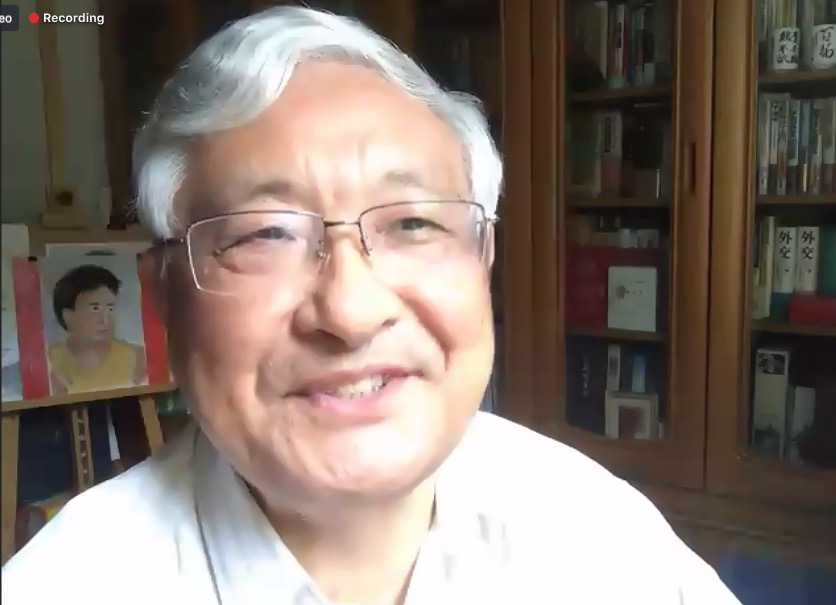
Researcher Jiang Xinfeng reported on the topic of "China Japan security relations under the epidemic situation", centering on how Japan balances between China and the United States, and pointed out that in order to avoid causing dissatisfaction from the United States under the epidemic situation, Japan's foreign policy balance tilted to the United States, with the focus still on maintaining the Japan US security alliance. Therefore, the development of China Japan relations is not optimistic.
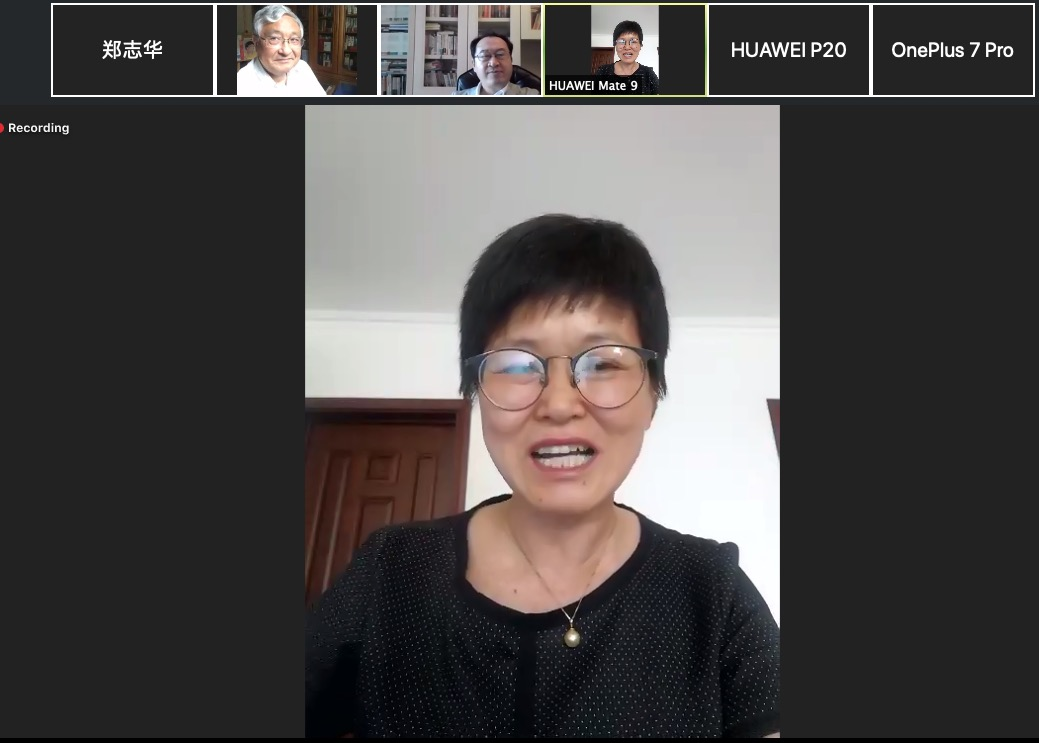
The topic of Professor Zheng Hua's report is "The impact of current China US relations on East Asia". Her speech focused on the impact of the development of China US relations on studying abroad and education, pointing out that as China and the United States move further and further away, the future direction of students studying abroad in East Asia and the international student market will change profoundly.
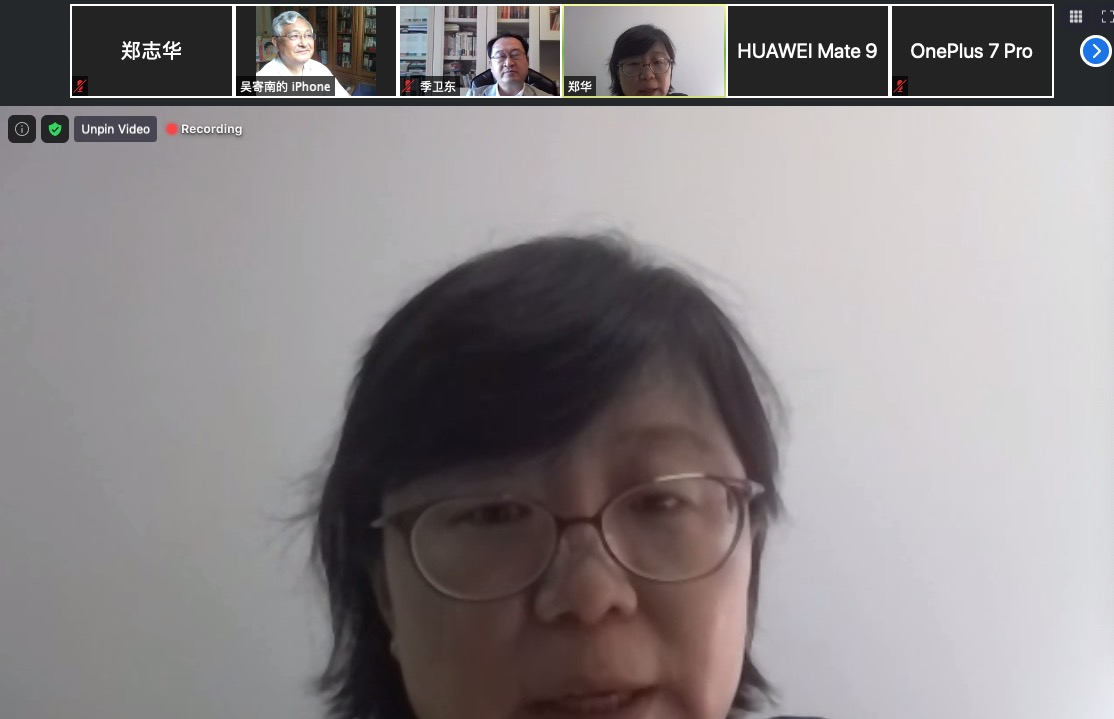
Professor Zhai Xin analyzed the different foreign policy choices between Japan and South Korea with "the cold war of Sino US relations under the epidemic situation and the issue of Japan and South Korea's side selection". He pointed out that Japan has always stood with the United States on the issues of the East China Sea, the Taiwan Sea and the South China Sea; The ROK, on the other hand, is very careful to avoid intervention and gamble on reunification, which requires both the support of the United States and the coordination of China.
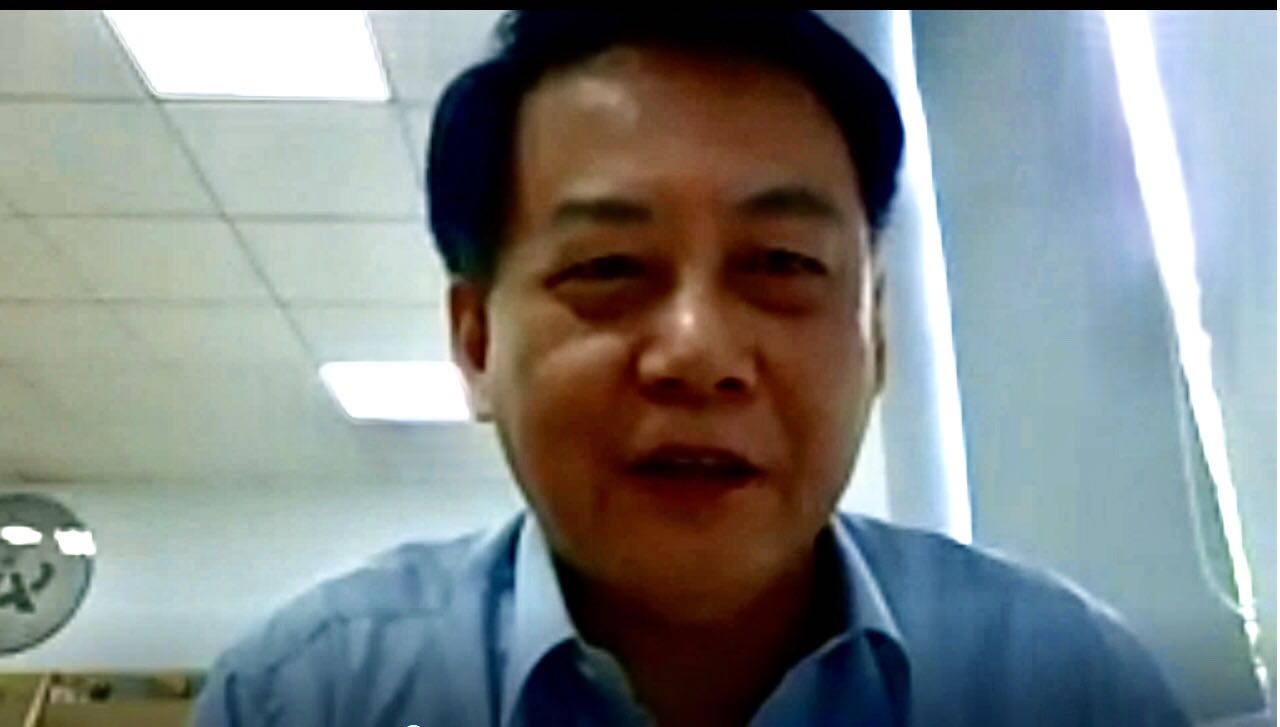
The title of lawyer Gao Shikun's report is "Inspiration of China and Japan's attitude towards the epidemic to the civil cooperation between the two countries". He believed that Japan paid more attention to the balance between epidemic prevention and economic operation to reduce uncertainty as much as possible. Japanese enterprises have both expectations and concerns about economic and trade cooperation with China. Therefore, under the "new normal" formed by the COVID-19, China Japan non-governmental cooperation will be more important.

Under the title of "Japan Taiwan relations in the post epidemic era", Associate Researcher Zheng Zhihua analyzed the cooperation and conflict between Japan and Taiwan in maritime security interests. He pointed out that Japan and Taiwan have mutual strategic needs, and strategic cooperation may become closer, but the two major variables of China and the United States will also profoundly affect the direction of Japan's Taiwan Strait policy.

The third unit of the forum opened a discussion on issues related to economic and regional cooperation. This unit was chaired by Lian Degui, director of the Japan Research Center of Shanghai Foreign Studies University. The speakers included Hu Lingyuan, director of the Japan Research Center of Fudan University, Liu Junhong, researcher of the China Institute of Modern International Relations, Cai Liang, researcher of the Asia Pacific Research Center of the Shanghai Institute of International Studies, and Chen Zilei, director of the Japan Economic Research Center of the Shanghai University of International Business and Economics Ma Lizhong, Director of the East Asia Research Center of Shanghai University, Wu Xinbo, Professor of Shanghai Foreign Studies University, and Chen Youjun, Associate Researcher of Shanghai Institute of International Studies.

Professor Hu Lingyuan comprehensively analyzed and explained the possible impact of the COVID-19 on regional economic cooperation in East Asia from the perspective of non-traditional security in combination with the background of Sino US strategic competition and the trend of globalization and regional integration.
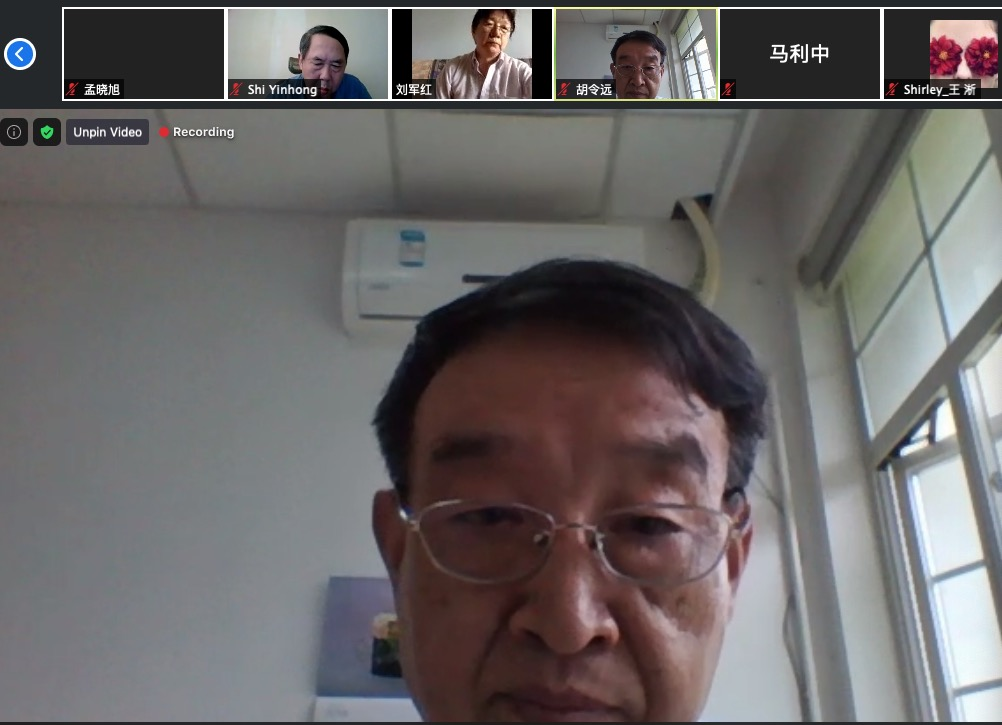
The title of researcher Liu Junhong's report is "China Japan regional economic cooperation under the economics of the COVID-19 epidemic". He pointed out that the direction of regional cooperation in East Asia in the new era could not give up the right to production in the light of the new characteristics of the epidemic economy; We must lead the leading technologies and industries in the new era, the innovation environment, investment rules, and technical standards, and create the "East Asia+" model.
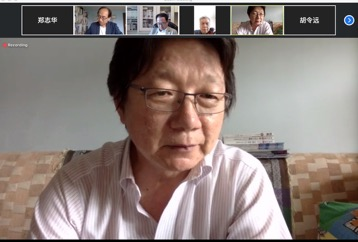
Researcher Cai Liang's report was entitled "Cooperation and competition between China and Japan in the process of East Asian regional integration in the post epidemic era". He pointed out that China and Japan have common interests in advocating a free trade order, so we should take Japan's own interests into consideration with an ordinary mind, and think more about the positive significance of RCEP, China Japan South Korea FTA and CPTPP for China's deepening reform and opening up.
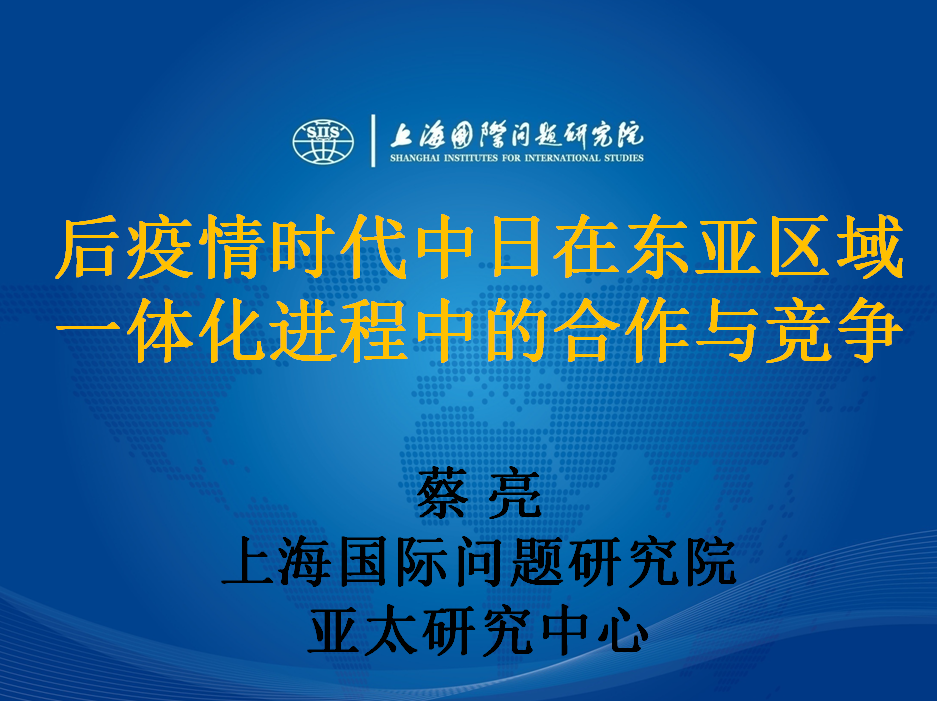
Professor Chen Zilei, entitled "Japan's Industrial Chain Reform Plan under the Epidemic Situation", analyzed the supply chain security and supply chain transfer problems caused by the COVID-19 impact. He suggested strengthening the construction of the supply chain security assurance system under the G20 framework, establishing relevant risk assessment mechanisms, and exploring ways to ensure the safe operation of the global supply chain.
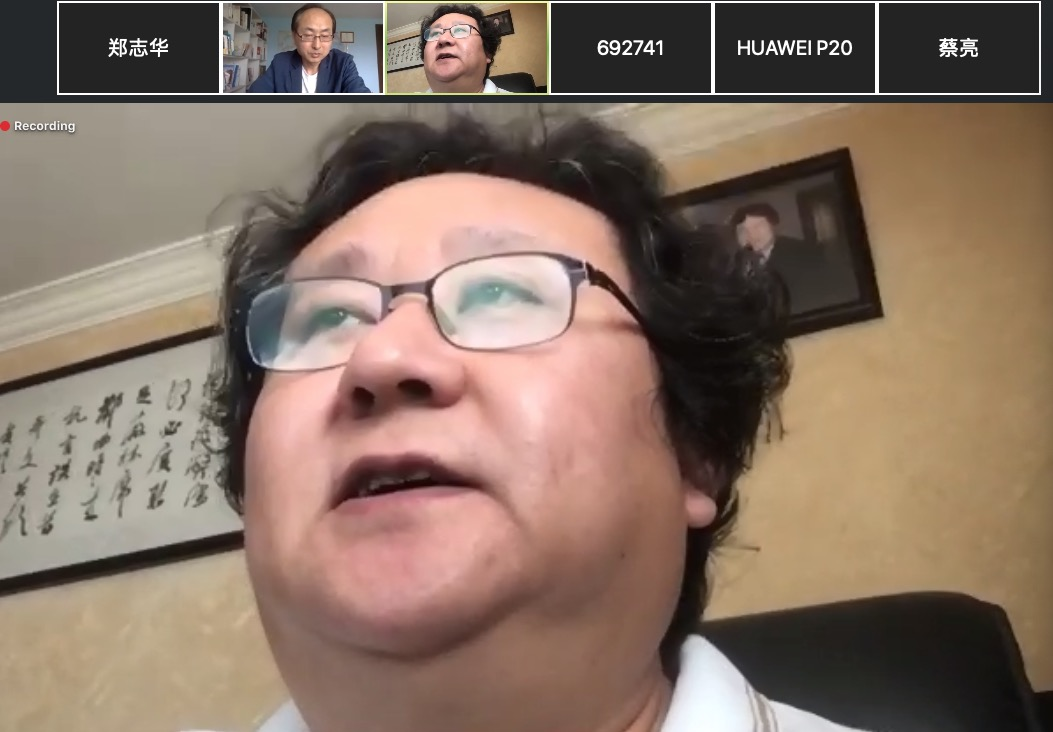
Under the theme of "two wheel drive" of China Japan cooperation in helping East Asia, Professor Ma Lizhong analyzed how China and Japan could make good use of the "time gap" between Europe and the United States to prevent and control the epidemic, strengthen joint prevention and control on the one hand to prevent the rebound of the epidemic, and actively optimize the division of work and expand cooperation in various fields on the other hand to promote regional revitalization.

The topic of Professor Wu Xinbo's report is "Strengthening Sino Japanese Regional Cooperation in the Post epidemic Era". He believed that in the context of the reversal of globalization and the disorder of the dynamic mechanism of cooperation among major powers, it is of great strategic significance to strengthen China Japan regional cooperation under the epidemic to ensure stability and security in Asia.
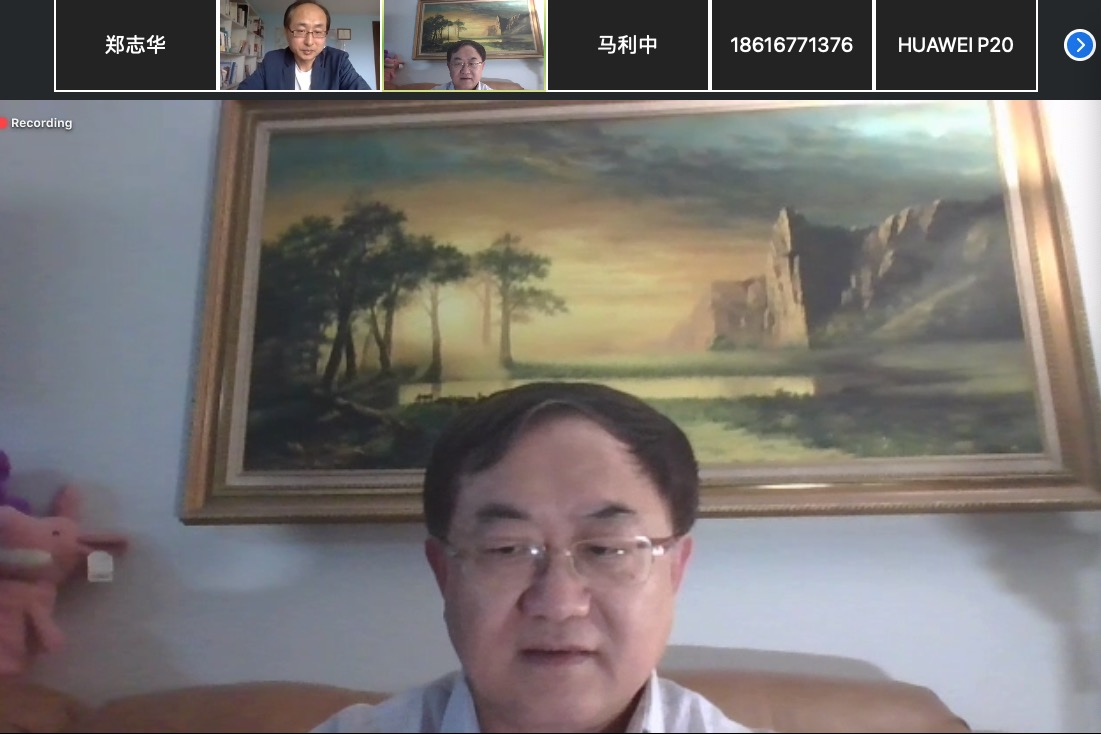
The title of the report of Associate Researcher Chen Youjun is "the impact of the COVID-19 on China Japan economic relations and trend judgment". He reviewed and summarized Japan's economic policies during the COVID-19, combined with the resumption of work and production of Japanese enterprises in China, and pointed out that although the Sino Japanese economic cooperation relationship is basically stable in the future, the competitive factors in the competition cooperation relationship continue to rise, which does not exclude the possibility of the outflow of some labor-intensive enterprises.
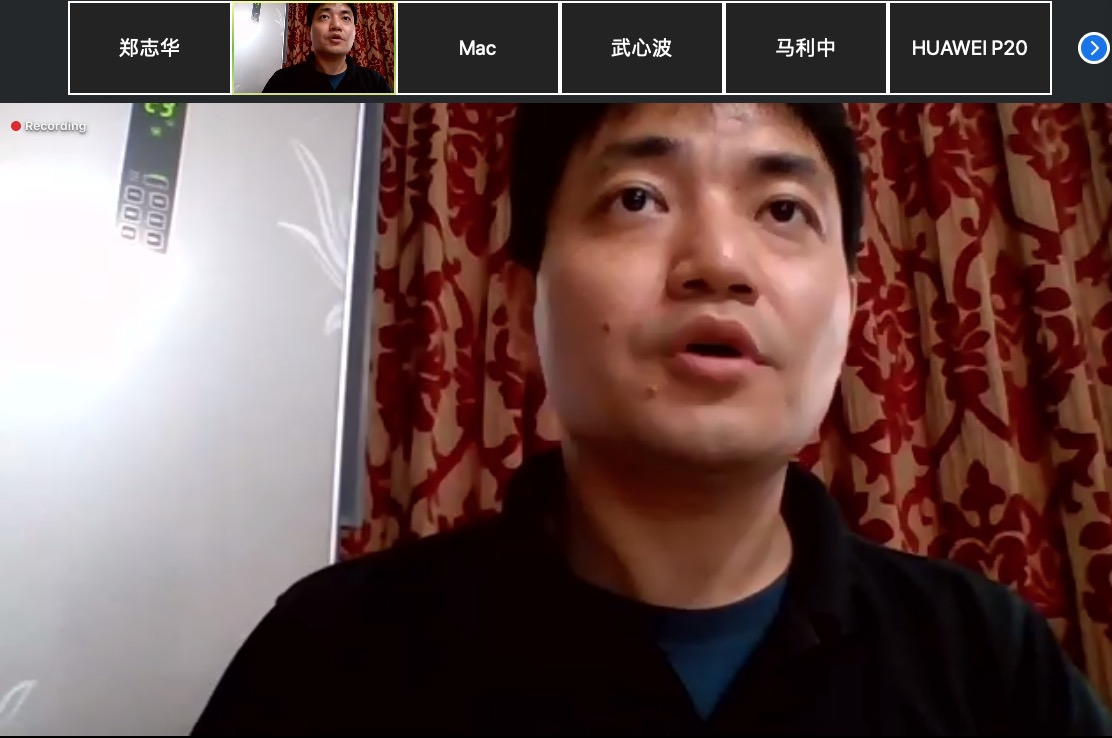
The fourth unit of the forum was hosted by Chen Zilei, director of the Japanese Economic Research Center of Shanghai University of International Business and Economics, and the speakers included Yu Zhirong, a researcher of China Ocean Development Research Association, Lv Shoujun, a professor of the School of International and Public Affairs of Shanghai Jiaotong University, Wang Yu, a professor of the School of International and Public Affairs of Shanghai Jiaotong University Meng Xiaoxu, a researcher at the Institute of Japanese Studies of the Chinese Academy of Social Sciences, and Dang Jianwei, an associate professor at the Shanghai Institute of International Intellectual Property Rights of Tongji University.
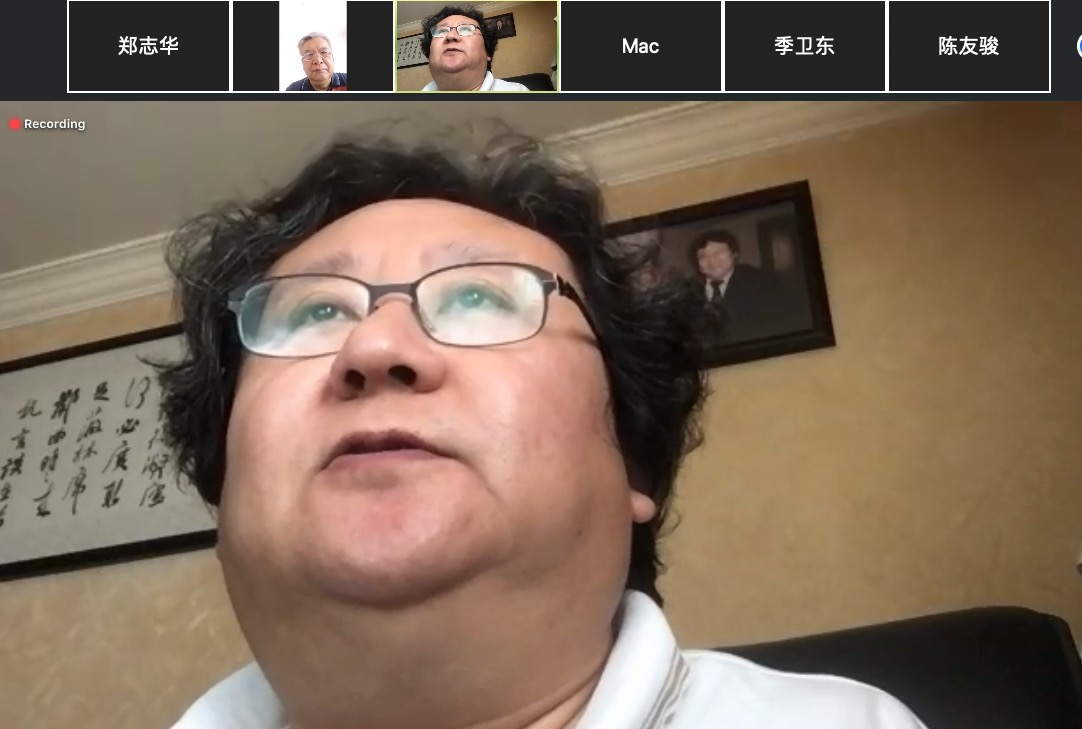
Researcher Yu Zhirong analyzed the prospect of China Japan economic cooperation in the marine field after the epidemic. He believed that the two sides had the basis and potential for cooperation in the cooperative development of undersea resources in the East China Sea, the cooperative exploitation of clean marine energy, the development and utilization of resources in the Arctic Channel and the Arctic Ocean, and even the joint efforts of China and Japan to promote the construction of the Kara Canal.
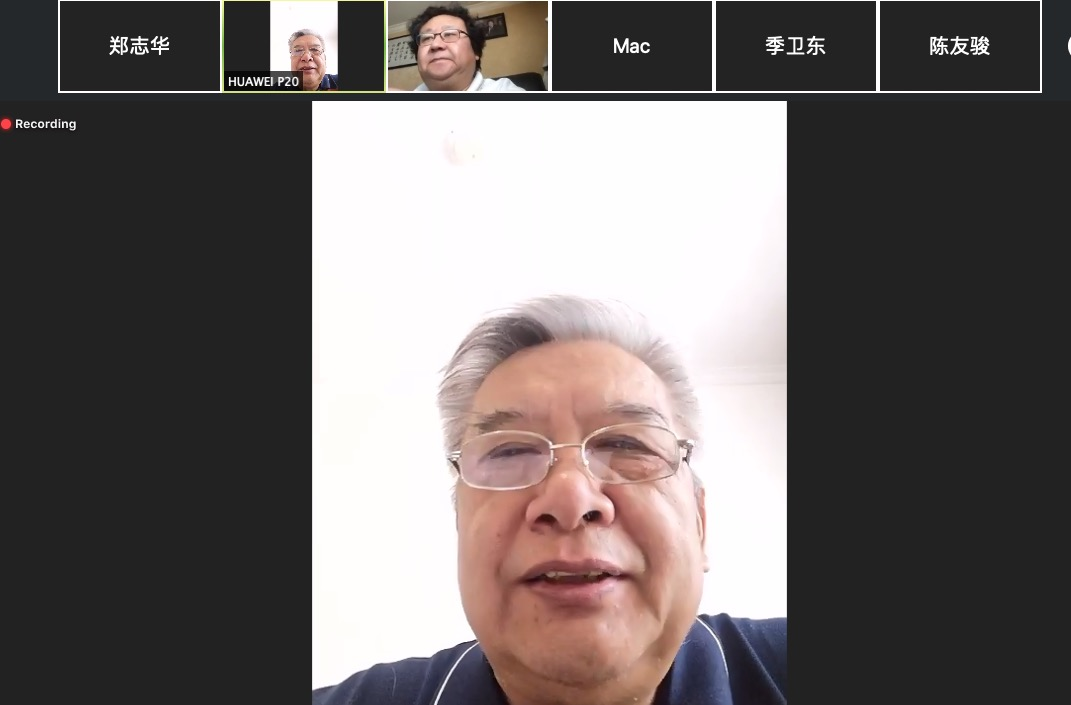
The topic of Professor Lv Shoujun's report is "China Japan economic cooperation from the diversity of COVID-19 epidemic prevention models". He pointed out that the contact industries, such as tourism, education, shopping, and medical industries, are facing transformation, while the non contact industries, such as "Internet plus" industries will be normalized. Therefore, China and Japan should focus on the medium - and long-term economic cooperation under the COVID-19 epidemic.

Professor Wang Yu's report focuses on how to improve urban resilience in the post epidemic period. She suggested that China should strive to improve the modularity, networking and substitutability of the facility layout. At the same time, according to the service characteristics of various facilities, the facilities that can be replaced to a certain extent shall be arranged as a whole to improve the safety of facilities utilization during the risk period.

Researcher Meng Xiaoxu, entitled "Challenges and Prospects of China Japan Regional Cooperation under the Epidemic Situation", analyzed the globalization and regional cooperation under the epidemic situation. He pointed out that Japan has an obvious tendency of "strategic autonomy" and is not obviously biased towards the West, seeking "balance" among major powers. Therefore, the two major economies of China and Japan have the potential and hope to carry out positive regional cooperation.
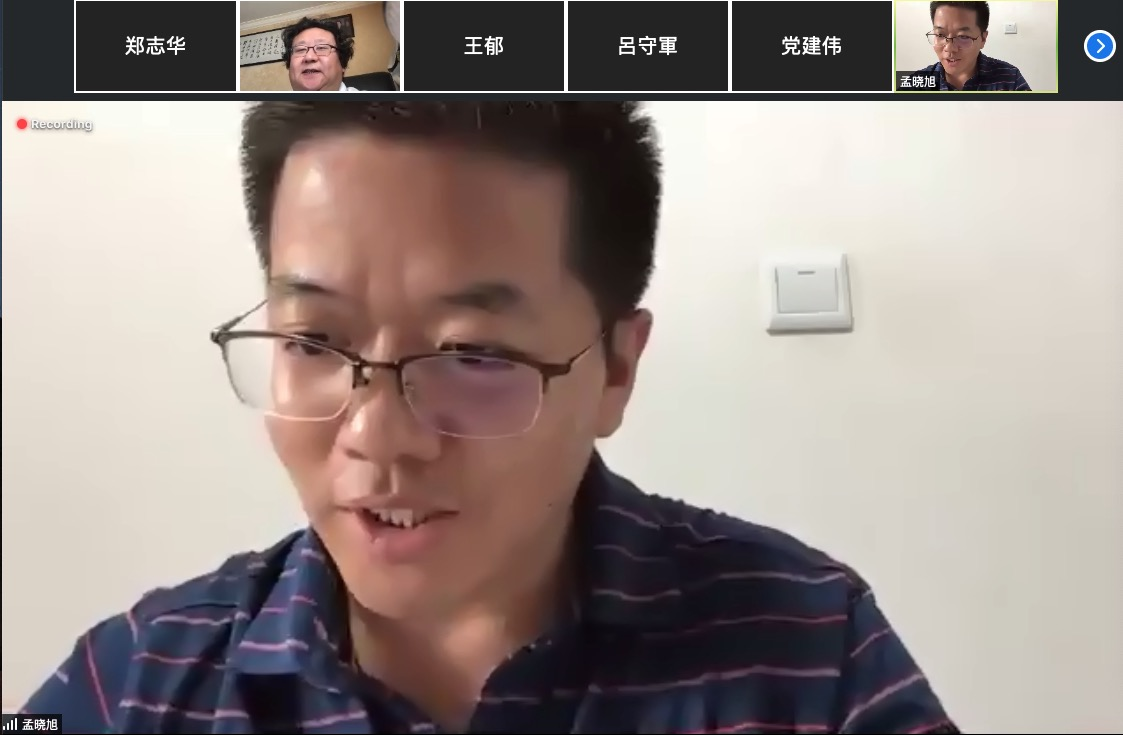
The title of the report of Associate Professor Dang Jianwei is "Global governance of intellectual property rights after the epidemic and China Japan cooperation in the field of standardization". He believed that standardization involved technical competition and was directly affected by the "decoupling between China and the United States". Therefore, China and Japan should recognize the economic and social costs of isolated technology systems, carry out demonstrative regional cooperation and form regional standards.

Finally, Professor Zhai Xin presided over the comprehensive review and conference summary of the forum, Professor Hu Lingyuan and Professor Chen Zilei conducted the comprehensive review respectively, and Professor Ji Weidong made the conference summary.
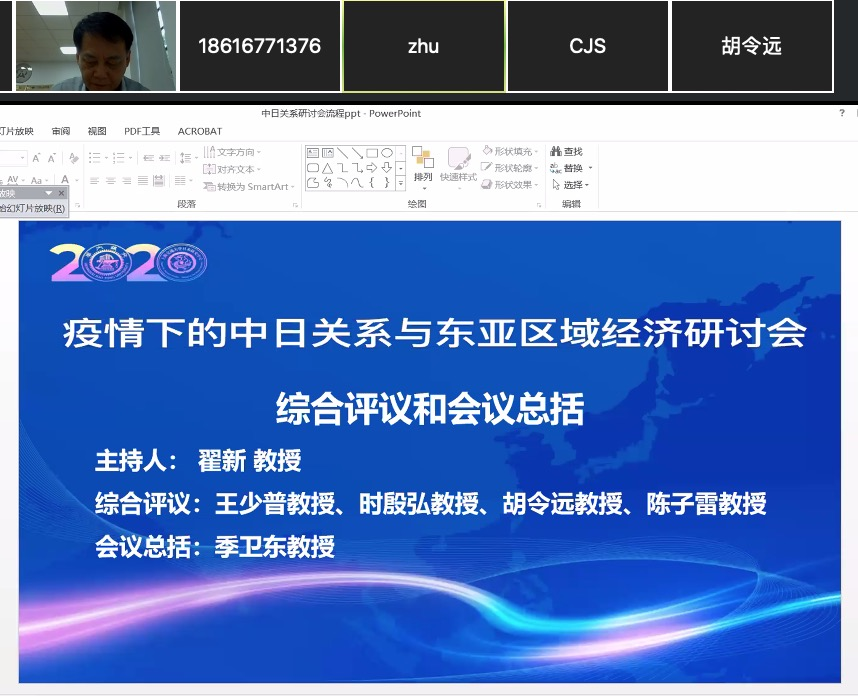
In the comprehensive review, Professor Hu Lingyuan pointed out that this forum highlighted the characteristics of industry university research cooperation. Experts analyzed China Japan relations and East Asia's economic cooperation from the macro, meso and micro perspectives. Professor Hu Lingyuan believed that in-depth reflection should be made with the help of the epidemic situation and the changes in China US relations. He stressed that we should be cautious and patient and make corresponding strategic adjustments so that national development can benefit the people, East Asia and all mankind.
The economic cooperation between China and Japan has a large space, but there are also many problems and challenges. Some problems can be solved and promoted in the multilateral framework or in the framework of China, Japan, South Korea, and ASEAN.
Professor Ji Weidong held a general meeting. He pointed out that we need to re-examine Japan's political and economic development trend and reposition China Japan relations from the perspective of the reversal of globalization brought about by the COVID-19 and the reconstruction of major country relations. First, a series of complex triangular relationships that are emerging and strengthening, such as China, the United States, Europe, China, the United States, Russia, China, the United States and India, as well as their "love, hate, love, hatred and sadism", constitute a device to promote structural changes in the world, thus leading to a significant increase in the uncertainty of the whole world. He agreed with the experts at the meeting that we should seize the main contradiction, appropriately carry out strategic contraction, and maintain and strengthen strategic focus. Second, it is necessary to see the complexity and repeatability of China Japan relations. The American factor plays an important role in it. Third, Japan's domestic political variables have increased significantly, which will also have a new impact on China Japan relations. Fourth, although the emergence of the COVID-19 has made Japan realize that its industrial supply chain has security problems, the lag of Japan's policy implementation mechanism, the high cost of industrial chain transfer, and the attractiveness of the Chinese market determine that the return of manufacturing industry will be a difficult and long-term topic. Fifth, East Asian regional cooperation is complex and uncertain. Although the United States strongly encourages decoupling from China, Japan, South Korea, Singapore and other countries have a vague attitude. Therefore, at present, the prospect is not clear.
Focusing on China Japan relations and East Asia economic and regional cooperation under the epidemic situation, the seminar discussed the challenges and opportunities of East Asia regional cooperation under complex changes. At a time when the future of the epidemic is still uncertain, it can be said that this academic conference has responded to the needs of the times and accumulated rich research results, which is of special significance. The Japan Research Center of Shanghai Jiaotong University will focus on this topic, grasp the pulse of the times, and combine actual needs to extend the academic dialogue on the complex East Asian relations in the post COVID-19 era.